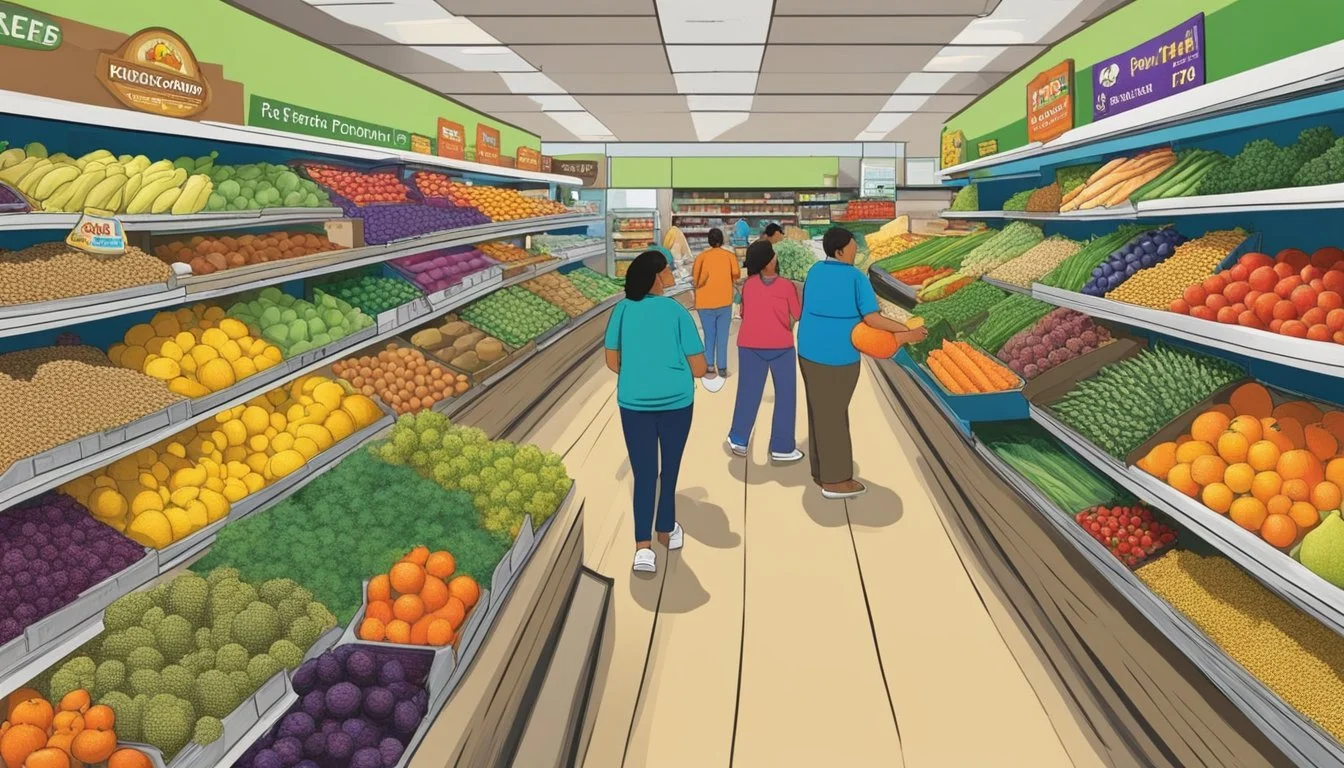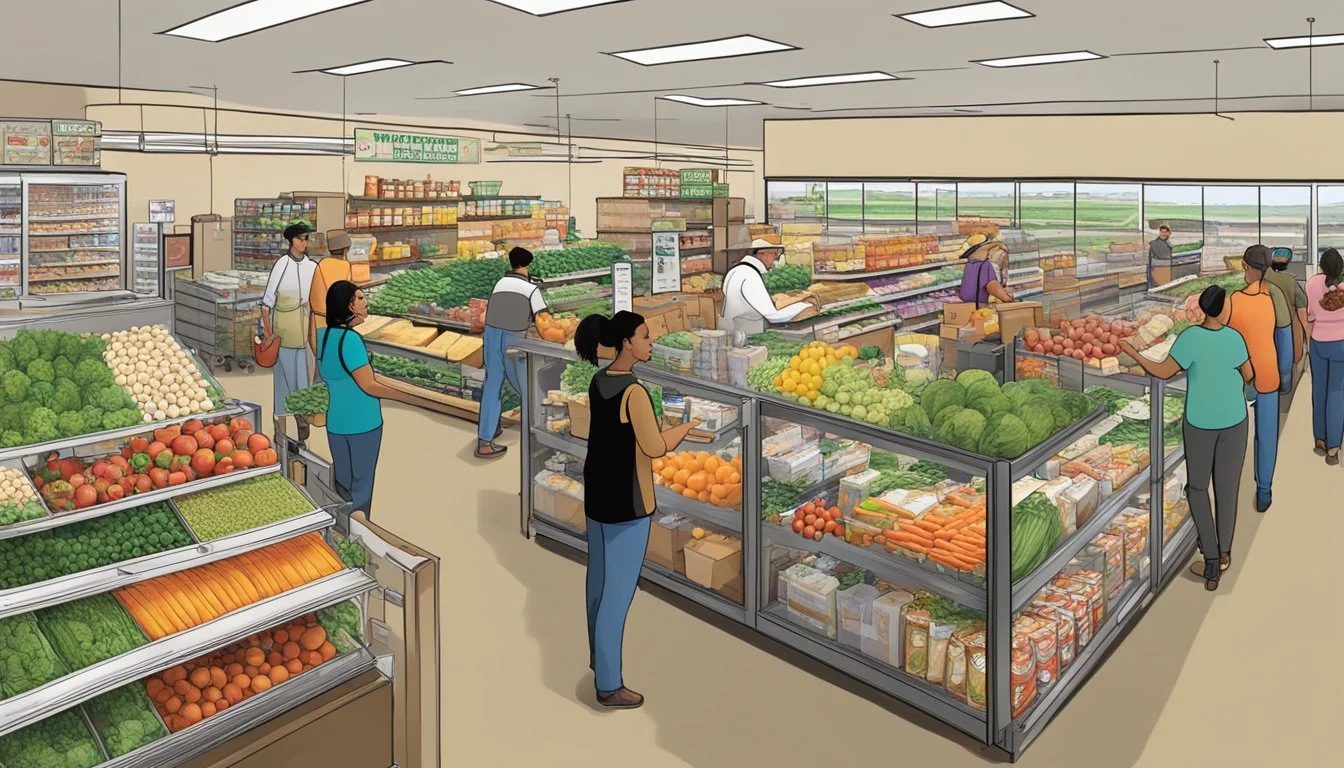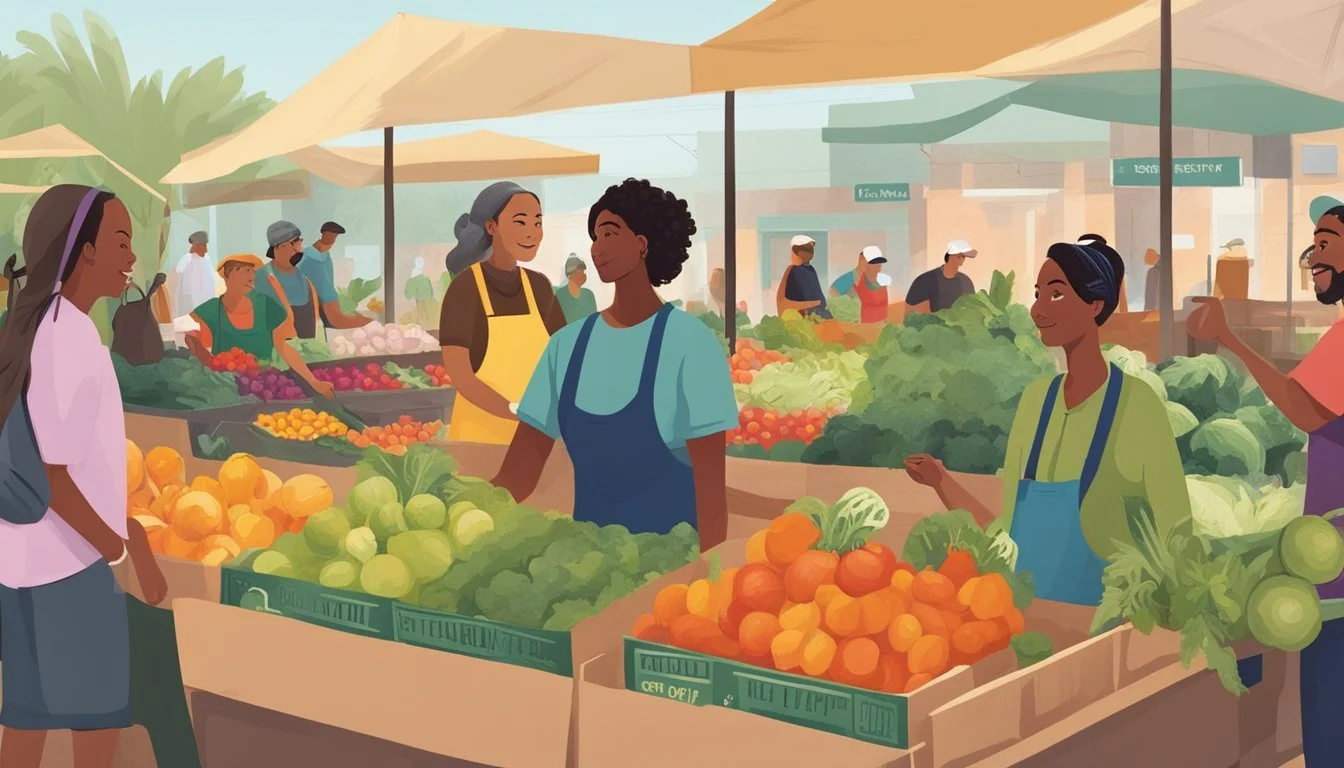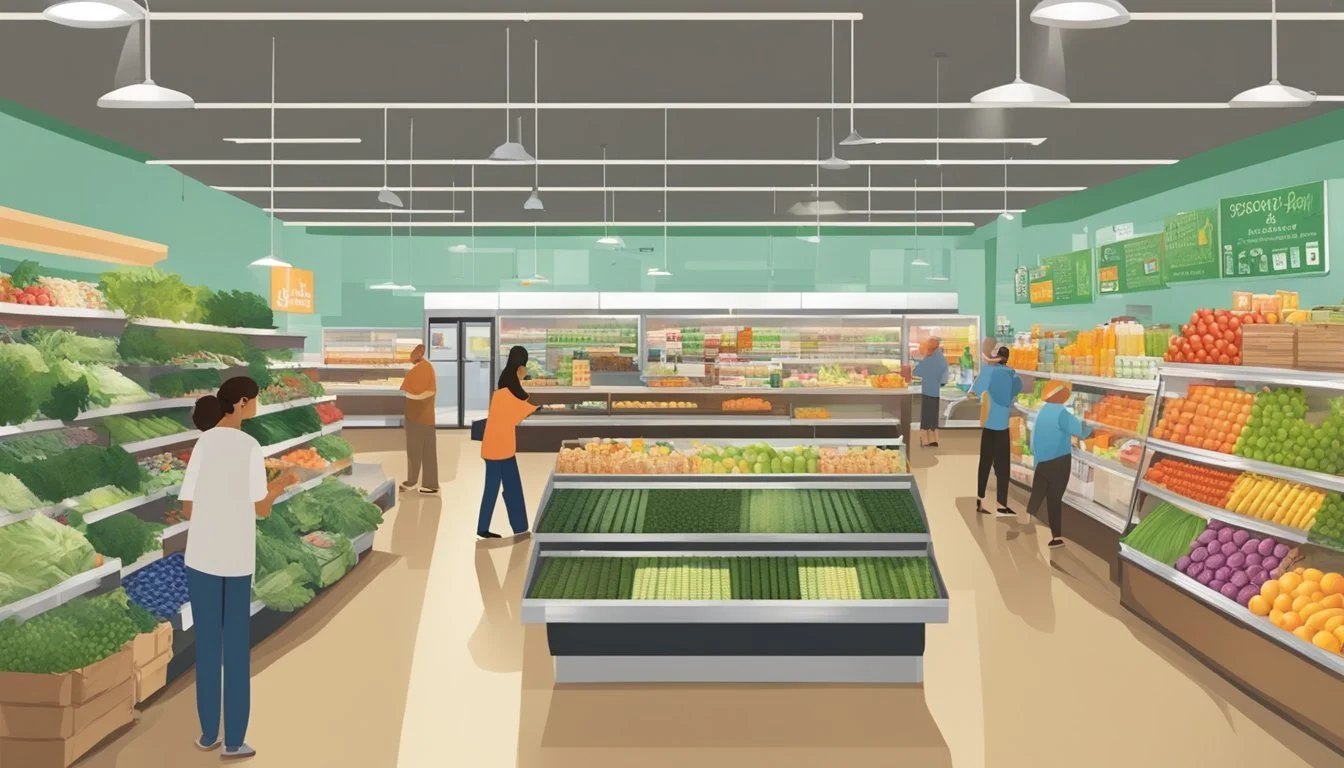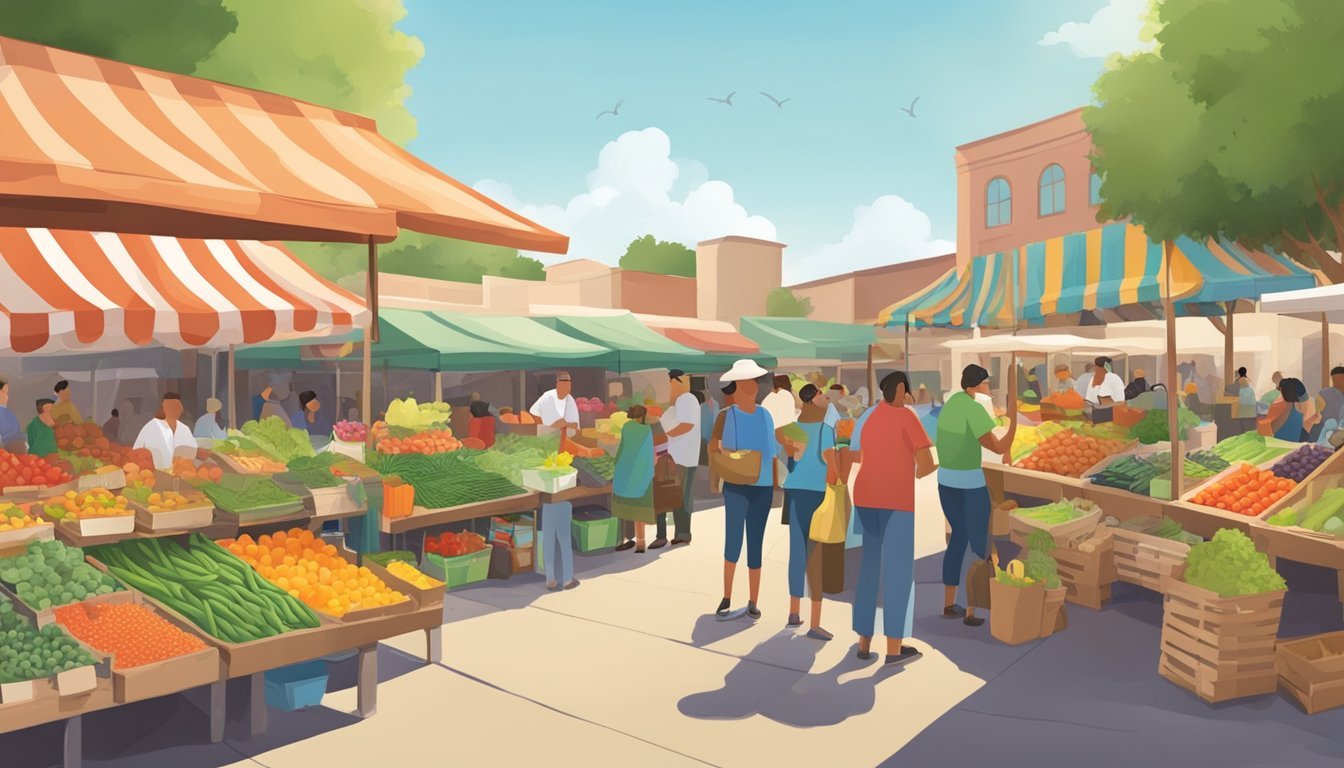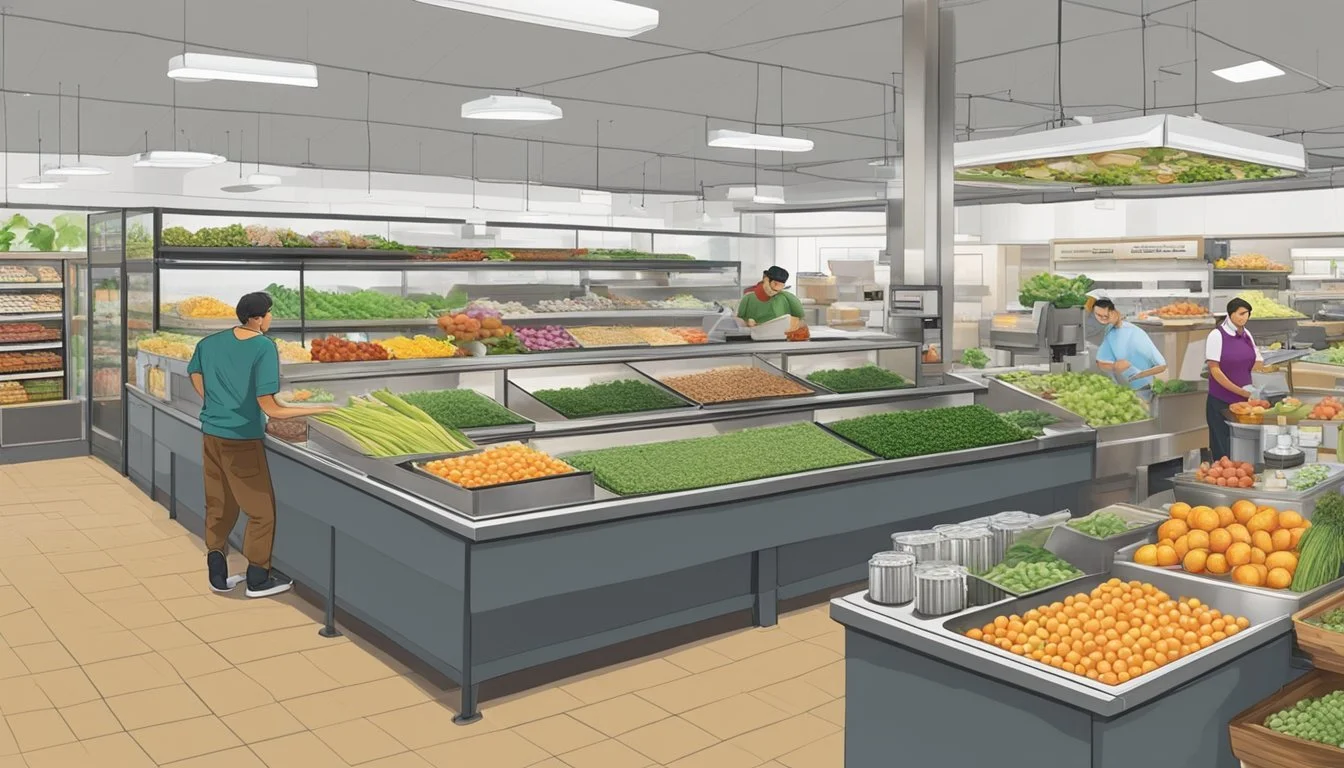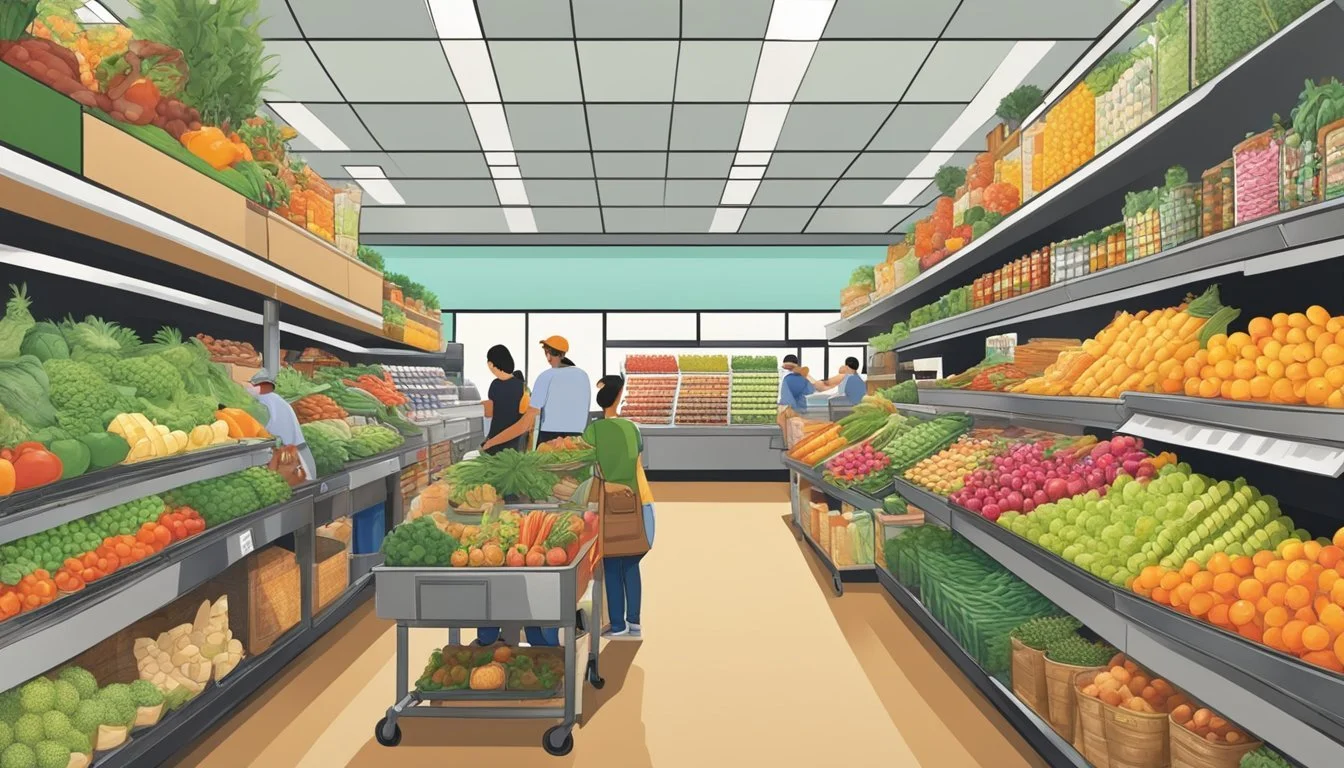Guide to Food Co-Ops in McAllen, TX
Your Essential Resource
McAllen, Texas, a vibrant community in the Rio Grande Valley, offers a unique approach to accessing fresh, locally-sourced food through food co-operatives, commonly known as food co-ops. These community-centered organizations operate on a membership basis, but they often welcome non-members to shop. They are built on the principles of collective ownership and democratic control, with an emphasis on health, community, and sustainability. McAllen's local food co-ops provide an alternative to conventional grocery shopping, bringing together consumers and producers in a way that supports local agriculture and fosters a closer connection to the food on one's table.
Residents of McAllen and the surrounding area benefit from the co-op’s commitment to offering organic fruits and vegetables, raw dairy products, pasture-raised eggs and chicken, grass-fed meats, and other healthful options. By sourcing directly from local farmers, food co-ops ensure that members have access to the freshest seasonal produce while contributing to the local economy and reducing the environmental impact of transportation. Co-op members often have the added advantage of participating in bulk purchasing, which can lower the cost of high-quality food by meeting the minimum orders required by producers.
Food co-ops in McAllen are more than just food retailers; they serve as community hubs, educational resources, and advocates for food justice. They aim to increase accessibility to nutritious food and share knowledge about sustainable practices. Through collaboration and shared interest in healthy living, McAllen's food co-ops nourish both the community and individual well-being, placing value on the connections formed between people and their food sources.
What is a Food Co-op?
A food co-op is a distinctive type of grocery store that is collectively owned and managed by its members. These cooperatives operate on principles of democracy, member control, and community benefit.
Defining the Co-op Model
A food cooperative, or food co-op, is a unique grocery model where ownership and decision-making power rests with the community members who invest in it. Unlike traditional grocery stores, a co-op is nonprofit and operates to serve the needs of its members rather than external investors. Members often have access to fresh, locally sourced products, including organic produce, meats, and dairy. They contribute through a membership fee and, in many cases, have opportunities to volunteer in exchange for discounts.
In McAllen, TX, a food co-op might closely cooperate with local community supported agriculture (CSA) initiatives, providing an outlet for CSA shares or integrating CSA offerings into the co-op market. This strong relationship between co-op and CSA helps ensure a supply of fresh and organic foods.
The Benefits of Joining a Co-op
Members of a food co-op typically enjoy several benefits:
Democratic Control: Each member has a vote in key decisions, from electing the board of directors to other important governance matters.
Economic Participation: Members contribute equitably to the capital of the cooperative and control it democratically.
Community Focus: Food co-ops place a high value on community well-being and often support local events or educational programs.
By participating in a food co-op, individuals directly support their local economy and have access to healthier food options, often at competitive prices. Through this collective effort, members of a food co-op in McAllen can foster a thriving, community-oriented food system.
Discovering McAllen's Co-Ops
In McAllen, Texas, food co-ops stand as pivotal entities within the local food system, reflecting a strong sense of community in the Rio Grande Valley.
Overview of McAllen Co-Ops
Food co-ops in McAllen serve as crucial hubs for sourcing a variety of products including organic fruits and vegetables, raw dairy, pasteurized eggs, chicken, and grass-fed meats. Patrons can take part in these cooperative organizations to meet their need for fresh, local food sourced directly from growers in South Texas. These co-ops function not only as marketplaces but also foster a collaborative environment where individuals can collectively place larger orders that satisfy local farmers' minimum requirements.
Commonly offered products at McAllen co-ops:
Organic fruits & vegetables
Raw dairy products
Pasteurized eggs & chicken
Grass-fed meats
Local Food Co-ops and Community Impact
McAllen's co-ops play a significant role in reinforcing the local economy and supporting regional agriculture. By directly connecting consumers with local producers, food co-ops contribute to the sustainability of small farms and ranches throughout the Rio Grande Valley. The community benefits from access to fresher, healthier food options and a strengthened relationship with the very people who grow their food. Additionally, these co-ops often serve as educational platforms, raising awareness about the benefits of local food systems and sustainable agricultural practices.
Member-Owner Benefits
Participating as a member-owner in a food co-op provides individuals with access to a unique set of benefits and responsibilities. They become part of a community focused on sustainable practices and often enjoy financial and decision-making perks.
How to Become a Member
Individuals interested in joining a food co-op typically purchase a share, signifying ownership and commitment to the community's values. The process usually involves:
Completing a Membership Application: Prospective members must fill out a form that includes personal details and agreement to the co-op’s principles.
Paying a Membership Fee: A one-time or annual fee is required to purchase a share in the co-op, granting membership status.
Advantages for Members
Becoming a member of a food co-op is more than just becoming a part of a buying club; it affords members numerous advantages:
Decision-Making Power: Members often have a voice in the co-op’s operations and choices through voting rights or eligibility for board positions.
Financial Benefits: Return on investment could be realized through discounts or dividends based on the co-op’s profitability and one's purchases.
Access to Resources: Members may have access to exclusive products, member-only buying clubs, or educational resources tailored to create informed consumers and advocates for sustainable practices.
Community Contribution: Through donations or volunteering, members support not only the co-op but potentially local farmers and businesses that align with the co-op's values.
Member-owners directly contribute to the growth and governance of the co-op, creating a resourceful community that resonates with their ideals of organic, local food, and sustainable living.
Inventory of Co-Ops
McAllen's food co-ops boast a robust selection of high-quality, locally-sourced food items ranging from fresh produce to premium meats. They emphasize the community's commitment to local growers and sustainable practices.
Fresh Produce and Meat Offerings
Local co-ops in McAllen, TX, pride themselves on offering a wide variety of locally grown produce and quality beef that supports regenerative agriculture practices. Shoppers can expect to find:
Fruits & Vegetables: A seasonal selection sourced from local farmers.
Meat: Including selections of locally sourced, high-quality beef and other meats from area ranchers.
Unique Finds at McAllen Co-Ops
In addition to the staples, McAllen co-ops provide a range of unique items produced by the local community. These may include:
Organic Food Items: Often certified organic, these products cater to health-conscious consumers.
Specialty Goods: Handcrafted items that reflect the regional flavors and culinary traditions.
Each co-op maintains its own network of growers and producers, ensuring that their offerings promote the local economy and provide shoppers with the freshest options available.
Supporting Local Agriculture
In McAllen, Texas, supporting local agriculture is built on community and environmental awareness. Food co-ops give prominence to close-knit collaborations and sustainable farming practices.
Partnerships with Local Farmers
Co-ops in McAllen recognize the crucial role of family-owned farms and ranches in bolstering the city's food landscape. They engage in partnerships with local farmers to offer Community Supported Agriculture (CSA) programs. Consumers who subscribe to these CSAs receive regular deliveries of fresh produce, thus ensuring a stable market for locally grown crops. The Central Texas Farmers Co-op is one example, reinvigorating the connection between local farmers and consumers through vegetable and meat subscriptions, supporting the backbone of McAllen's agriculture.
Benefits for Farmers:
Steady demand for their products
Direct relationship with consumers
Fair compensation for their labor
Benefits for Consumers:
Access to fresh, locally sourced food
Knowledge of where their food comes from
Support for local economy and farming families
Promoting Regenerative Practices
Food co-ops in McAllen not only focus on the economic aspects but are also advocates for regenerative agricultural practices. These practices aim at improving soil health, conserving water, and increasing biodiversity on farms. They often promote organic farms like Terra Preta Farm in the nearby town of Edinburg, which has been farming organically since 2007. By supporting such initiatives, co-ops contribute to sustainable and environmentally responsible food systems.
Regenerative Practices Include:
Crop rotation and diversity
Reduced tillage to protect soil structure
Organic pest management
Through these measures, McAllen's food co-ops are at the forefront of creating resilient agricultural systems that are beneficial for the environment and the community. They help ensure that ranchers and farmers continue to thrive by maintaining a close relationship with the people they feed.
Health and Nutrition
Food co-ops in McAllen provide crucial access to high-quality, nutritious food options and offer educational resources that promote healthy living to the community.
Access to High-Quality Food
Food cooperatives are a beacon for health in McAllen. They are committed to offering fresh, locally sourced produce, which is essential for a balanced diet. Members typically enjoy a wide selection of organic fruits and vegetables, which translates to meals rich in vital nutrients and minerals. Prioritizing high-quality food is paramount at these cooperatives, ensuring that individuals and families have the resources to maintain a nutritious lifestyle.
Educational Resources for Healthy Living
In addition to providing healthy food options, McAllen’s food co-ops are dedicated to nutrition education. They often host workshops and events that guide community members on the importance of health in diet and give tips on preparing nutritious meals. By fostering an environment of learning, these co-ops empower individuals to make informed choices about their dietary habits. These educational efforts are critical in cultivating a community that values and actively pursues a healthy way of life.
Economic and Social Impact
Food co-ops in McAllen, TX have a measurable impact on the local economy and the fabric of the community. They are more than just places to buy food; they empower residents and contribute to the sustainability and resilience of the area.
Strengthening Community Resilience
In McAllen, food co-ops play a crucial role in fortifying community resilience. They create a network that supports local economies during challenging times by sourcing from regional producers and investing in local infrastructure. Residents of varying ages benefit from education on nutritional health and sustainable living, promoting a resilient community culture able to withstand social and economic shifts.
Support for Beginning Farmers
Beginning farmers in McAllen find an advocate in food co-ops, which often provide an essential platform for them to bring their products to a wider market. This support can include facilitating connections within the local agricultural community, offering more favorable terms than conventional grocers, and championing policies that support small-scale, sustainable agriculture. Through these efforts, co-ops ensure the new generation of farmers can thrive and sustain the agricultural tradition of the community.
Events and Activities
Food Co-ops in McAllen, TX, play a crucial role in fostering a sense of community by organizing events and educational workshops focused on food education, sustainability, and local outreach efforts. These events not only bring people together but also strengthen the cooperative principles that underpin the local food system.
Workshops and Education
Pasta Making Methods and Innovations: Food co-ops often host cooking classes and food preparation workshops. For example, a pasta-making workshop provides an excellent opportunity for members and the public to learn traditional techniques alongside new culinary innovations.
Manifestation Workshop RGV Manahood: With a focus on personal development and community building, such workshops aim to align cooperative members towards common goals, boosting the cooperative's impact within McAllen.
Community Events and Outreach
Elite Wedding & Quinceanera Expo: Events like this held at venues such as the McAllen Convention Center offer an opportunity for local food co-ops to engage with a broader audience, showcasing their products and values to the community.
Official Cinco de Mayo Bar Crawl: Food co-ops can participate in or sponsor community events, which is a strategic way to outreach and integrate with the local culture, highlighting their commitment to the community and local traditions.
Comparing Co-Ops with Other Stores
Food co-ops in McAllen, TX offer a unique shopping experience distinctly different from traditional grocery stores. Through ownership structure and community involvement, they cater to specific needs and provide select benefits to their members and local communities.
Co-Ops vs. Grocery Stores
Food cooperatives, or co-ops, are owned and democratically controlled by their members, contrasting with the corporate ownership of most grocery stores. This member ownership often results in a focus on high-quality beef and fresh produce in the co-op's inventory, prioritizing local and organic options. Co-ops typically provide benefits to members, such as discounts or dividends, that are not available in traditional grocery settings.
Ownership: Members own co-ops while investors own grocery stores.
Product Selection:
Co-ops: Often organic, local, fresh produce, and quality beef.
Grocery Stores: Broader range of products, including non-local items.
Members invest in their co-op, contributing to a model that supports and nourishes local communities. They may offer better pricing on certain items, particularly for members who contribute equity or volunteer time.
The Co-Op Difference
Co-ops are embedded into the fabric of their local communities, distinguishing them from other retail food outlets. They actively support local economies by selling locally-sourced products, which on average constitute a much higher percentage of sales compared to national grocery store averages.
Community Impact:
Co-ops: Significantly higher local product sales, strengthening local economies.
Grocery Stores: Lower percentage of sales from local products.
This investment in local producers contributes to a vibrant local food system that supports sustainable practices and provides patrons with fresher and often more nutritious food options.
Co-ops also practice a shared equity model not found in grocery stores, which enables their members to have a say in business decisions, fostering a sense of community and shared goals among the members.
Food Co-Ops Beyond McAllen
While McAllen hosts its own selection of local food initiatives, exploring beyond the city can uncover a network of food co-ops that serve the larger Rio Grande Valley and the broader South Texas region.
Food Co-ops in the Rio Grande Valley
The Rio Grande Valley (RGV) is rich in agricultural production, making it a ripe area for food co-ops. These co-operatives offer a connection to local produce and goods, extending benefits not only to local growers but also to the members of the RGV community. Food co-ops in this region support the community by providing access to fresh, locally-sourced and often organic foods, while also fostering a strong sense of community involvement.
Expanding Horizons: Co-ops in South Texas
Further afield, South Texas provides an expansive area where food co-ops have begun to take root and serve central Texans. These cooperatives are crucial in locally-oriented food systems, contributing to the sustainability and strength of local communities. They often work closely with local farmers and provide an array of regional products, extending the community-supported agriculture model to a wider array of consumers in South Texas.
Practical Considerations
When considering joining or shopping at a food co-op in McAllen, TX, it is essential to understand the financial aspects, including costs and the economic model, to make an informed decision.
Pricing and Affordability
Food co-ops often strive to offer competitive pricing, balancing the need to support local producers with the affordability demands of the community. Members may benefit from discounts, and the public can usually shop at co-ops without membership, albeit at slightly higher prices. Furthermore, co-ops may participate in programs such as SNAP (Supplemental Nutrition Assistance Program) and WIC (Women, Infants, and Children), which can help make healthy, locally sourced food more accessible to qualifying individuals and families.
Membership discounts: Often available to members who invest in the co-op.
SNAP and WIC: May accept these forms of government assistance, enhancing affordability for low-income shoppers.
Bulk purchasing: Can reduce costs, as buying larger quantities often means lower prices.
Understanding the Economics of Co-Ops
A food co-op is not solely focused on profit but rather on service to their members and the community. They employ a business model that re-invests profits back into the co-op, for improvements, better prices, and employee benefits. Employees of a co-op are typically paid fair wages and may receive additional benefits that contribute to a stable and satisfied workforce, which in turn can enhance the shopping experience.
Profit reinvestment: Profits cycled back for the benefit of members and the enterprise.
Employee benefits: Fair wages and potential profit-sharing or other incentives.
Community focus: Commitment to local suppliers and producers supports the regional economy and ensures fresh produce availability.
Conclusion
Food co-ops in McAllen, TX serve as pivotal points where the community can access fresh, local produce, often directly sourced from family farms. These cooperative efforts not only provide organic fruits, vegetables, and grass-fed meats but also strengthen the local economy and foster a sense of community.
Benefits to Members and Community:
Access to high-quality, fresh produce
Support for local farmers and producers
Strengthening of local economies
Contribution to sustainability efforts
Nonprofit organizations often collaborate with these co-ops, fostering a system that benefits both the environment and local community members. Such partnerships may also facilitate educational programs about healthy eating habits and sustainable farming, amplifying the co-ops' impact beyond just economic facets.
Promoting Sustainability and Education:
Environmental stewardship through reduced food miles
Educational workshops for members and the public
In summary, food co-ops in the McAllen area embody more than just food retail outlets; they are essential components of a thriving local food ecosystem. By choosing to shop at a co-op, individuals not only obtain nutritious food but also invest in their community's well-being and the vitality of regional agriculture.

